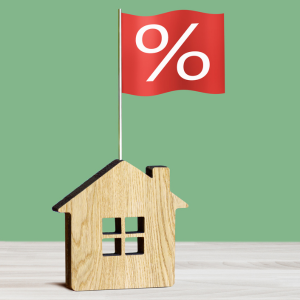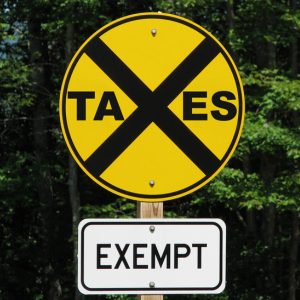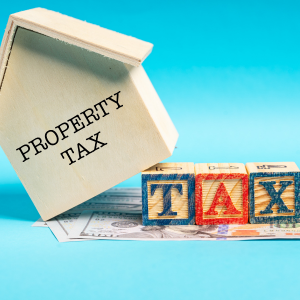With no doubt, Oahu’s splendid landscapes continue to draw hopeful property owners and prospective investors to its shores. This as-yet-unexplained guide seeks to break down and simplify Oahu, Hawaii, real estate property taxation structure, focusing on the tax year 2025-2026. As documented, financial planners know that local taxation regulations and property market conditions are relatively versatile. This planning guide seeks to remove the speculation on tax structures to outline them for prospective investors while noting some valuable tips for our owners. To properly navigate the property planning and the oerismic Oahu market estate reg, even simple property owners must pair this with other up-to-date, real-time policy information.
Understanding Oahu’s Property Tax System
Like much of the island’s economic backbone, the Oahu property tax system centers on the realities of real estate ownership and investment decisions. Honolulu County’s primary funding source is public services, such as schools, infrastructure, and emergency services, and the maintained tax structures that influence market behavior and affordability. The system focuses on fairness, sustainability, and fiscal responsibility in assessing property taxes, utilizing property market valuation frameworks.
Relative to the other Hawaiian Islands, Oahu’s property tax system showcases competitive advantages and the tax penalties associated with being a heavily populated urban center. Studying this system reveals the competitive advantages of Oahu’s tax system and the methodologies for integrating them into the rest of the state’s economic planning, which provide stability to a volatile, ever-changing real estate market.
Contact us today to learn more about our tailored offer and how we can help you navigate Oahu’s unique property tax system to maximize your real estate investment opportunities.
How Property Taxes are Calculated in Oahu
Understanding the method of calculating property taxes on Oahu begins with assessing each piece of real estate: determining its value for taxation. An annual property tax depends on the property’s value as defined in the market or at market value. A regularly’ re-assessed’ property can bear its value relative to existing market conditions. The county relies on the assessments for its crucial functions, such as funding for education, public safety, and even infrastructure.
Still, the tax ‘mils’ ($1 for every $1,000 property value) equals the assessed property tax value. It is central to the calculation of taxes as decided yearly by the relevant authorities within Honolulu. The annual tax ‘mils’ rate converts assessed property to actual taxes.
Multiple factors have influenced this. The state of the market influences values on some properties. Also, there may be tiered tax rates based on the type or use of the property, such as residential and commercial. Tax exemption is one of the tax factors responsible for lowering the taxable values. These factors provide relief to lower-income earners, veterans, and the elderly, to name a few.
In the end, the invention of new property or considerable expansions in property value may also change tax burdens and revenues on the county. Regarding voters, real property owners, and investors, managing and planning obligations efficiently to stay apprised of the assessments, rates, and exemptions involving investments is essential. The property tax of Oahu is an example of the balance of the marketplace, which couples assessments, shed controls, and focused exemptions to achieve equitable taxation.
Comparison of Oahu’s Property Tax Rates to Other Hawaiian Islands
Oahu’s property tax rates are relatively moderate compared to other Hawaiian islands, such as Maui, Kauai, and the Big Island. These differences result from the different economic and governmental systems on each island. Oahu’s financial center, Honolulu, has the highest property tax rates. This is due to the dense infrastructure and services that require strict taxes to be enforced.
Although high in value, Oahu’s property tax rates are optimized not to scare away investors and homeowners. The county’s tax rates are still competitive, so the finances of the overpopulated areas of Oahu’s public services are adequate. This tax level is what makes Oahu appealing to residents as well as investors.
Maui, by contrast, often shows slightly higher rates, reflecting its lower population density and reliance on tourism-driven revenue. With its smaller population and modest real estate market, Kauai tends toward lower rates that preserve its serene and less commercial environment. With its vast size and diverse land uses, the Big Island employs a tiered tax structure to address urban centers like Hilo and rural areas needing significant infrastructure investment.
Each area decides the extent of special tax treatments, such as tax incentives for agriculture or conservation lands. Oahu has applied such incentives to maintain the urban–rural balance and cultural heritage.
For instance, understanding property tax rates from one island to the next reveals that Oahu’s rates are consistent with its dominant economic and cultural activities. From the standpoint of investors, this fact emphasizes Oahu’s propitious position, which determines how investment will be distributed throughout the entire market of Hawaii.
Exploring the 2025-2026 Tax Rate Changes
Entering the 2025-2026 tax year, Oahu experiences one of the most pronounced changes in the property tax structure, which calls for intensive scrutiny and planning by property owners. The importance of grasping such changes is especially apparent when considering the evolving realty shifts, changing legislative, and regulatory fine points. The shifts in fiscal policy that originate from governmental fiscal budget setting, alongside shifts in the economy, set the framework through which tax liabilities will be assigned and distributed.
At the same time, the appreciation in property value raises tax liabilities, which offers puzzling risks and opportunities for many homemakers and investors. If property investors examine and analyze the factors mentioned earlier, they will significantly alleviate the number of surprises that changes in the tax period could cause for their financial strategy.
Oahu Home Buyers offers expert guidance to help property owners navigate Oahu’s 2025-2026 tax changes, providing strategies to manage liabilities, maximize opportunities, and stay prepared in a shifting real estate and fiscal landscape.
Factors Leading to Changes in Property Tax Rates
The economic situation, public policies, and public expenditure priorities influence the changes to Oahu’s property tax rates for 2025 and 2026. One plausible reason for this is the financial situation and expectations. During economic growth and recession phases, counties change rates to collect sufficient revenue to provide indispensable services to the citizens, like education and public safety. This is the same approach taken by authorities when quoted for tax strategy—provide the necessary services and relieve the fiscal burden simultaneously. This approach is similar to the one taken earlier for predicted growth.
Adjustments to Oahu’s tax rates are also due to communication from central authorities. Enough evidence suggests that these changes result from balancing the sociopolitical structure with economic growth. His diverse tax structure consists of increasing public spending and providing civic infrastructure. With Oahu’s various regions, from the central city to the outlying metropolitan suburbs, these factors—rates, development, structure, amenities, and the balance between inflation and the county finances—must be correlated precisely.
Changes in property assessments also have an impact on property tax rates. Property tax reassessments attempt to keep assessed property values in line with prevailing property market conditions. Appreciation says, values go up. Adjustments made to revenue are consistent over the years- the “overburdening” principle keeps revenue taxpayers from being overburdened. This highlights how the property tax system “fluctuates”, as market conditions affect the property and taxes owed.
The influence of demographic changes should not be underestimated. As Oahu continues to experience population and market growth, with increasing demand for housing and expanding development zones, corresponding pressure mounts to adjust tax rates. Demographic shifts impact housing needs and valuation, spurring tax rate changes to account for an altered tax base and its ability to sustain ongoing public services. Property owners can better navigate the forthcoming tax year by analyzing these factors and understanding how broader economic policies, assessments, and population dynamics confluence in this critical fiscal consideration.
The Impact of New Appreciated Values on Tax
In Oahu, the 2025-2026 taxation period showcases the effect of appreciated property values. An increase in economic activity, demand, and housing supply, in turn, raised assessments and further increased liabilities for residential and commercial owners.
Property taxes constitute a proportion of the assessment value. This appreciation consecutively sets higher standards for baseline rates due to higher property value appreciation; therefore, market forces will still outpace slow economic demand, even with a decrease in tax rate adjustments.
Like other areas in Hawaii, Oahu drives value appreciation in commercial real estate with corresponding hyper-vigilant tax modifications, leading to increased scrutiny in the field. Even with tax changes, the agents and analysts must incorporate market alterations within their evaluative frameworks.
In terms of public policy, the county may implement vertical taxation to minimize the tax impact of cap rates on mid-value modifications, which will lessen the tax impact of the rate convolutions. Disproportionate burdens, in this case, will be mid-value properties, leading to the mid-value cap modifications. Other policy developments may be for differentiated zones to reduce pressure taxation in zones that rapidly appreciate real estate value.
By anticipating these dynamics, property owners can adjust financial plans and investment strategies to mitigate the fiscal impact of rising assessments.
Tax Exemptions for Hawaii Homeowners
For any reasonable property owner seeking to understand the basis for lowering their taxes, the exemptions that apply to the state of Oahu are critical for Oahu, Hawaii’s homeowners, and Hawaii’s residents concerning prospective disparity and guaranteed financial prospects. Because the resultant offset is Oahu, Hawaii’s property value burden, which results from Oahu, Hawaii’s property value boom, they strive to lessen the imbalance that results from Oahu, Hawaii’s value offset. Understanding the rationale of the rating scale to identify the exemption will lead to smoother savings.
The value of the property exemption exceeds the tax payment, thus encapsulating the sale, purchase, and dividend return conditions. Detailing the outlined methods of tax payment exemption provides the homeowner with cash flow control, easier investment, sabbatical leverage, and dynamic control over active and inactive structures in the Oahu, Hawaii property domain.
Eligibility Criteria for Tax Exemption in Oahu
Understanding tax exemption eligibility is key for Oahu homeowners to manage property taxes and make homeownership more affordable in a fluctuating market. After you sell your house for cash in Hawaii, knowing which exemptions you may qualify for is equally essential, as they can significantly impact your future financial planning. Exemptions often depend on property use, ownership status, and residential criteria. The most common is the home exemption, which applies to owner-occupied primary residences as of January 1 and can significantly reduce the assessed value, lowering taxes owed.
Exemptions also assist specific population segments. Aging citizens and pensioners receive tax relief, allowing them to retain their homes even when market prices are skyrocketing. Veterans are granted service recognition and property tax relief toward community property taxes, which helps stabilize community maintenance. Veterans may receive or meet criteria for specialized relief to alleviate financial burdens.
In addition to homes, the County grants tax exemptions on agricultural land for its contribution to environmental sustainability, encourages land retention for farming purposes, and provides tax relief.
Together, these exemptions reduce homeowners’ costs and strengthen Oahu’s communities by ensuring that seniors, veterans, farmers, and others can continue to live and contribute locally.
How Tax Exemptions Affect Your Overall Tax Liability
In Oahu, tax exemptions are crucial when determining homeowners’ finances since they affect strategic planning—exemptions lower property taxes, alleviating the financial stress burdening residents in the housing market of Hawaii.
These exemptions safeguard affordability by removing declining market value assessments before calculating tax value assessments. In addition to reducing tax burdens, they promote freed disposable income, socioeconomic activity—augmented household consumption, increased local investment, and greater reinvestment at home.
Exemptions improve the investment attractiveness of real estate because lower obligations entice purchasers and investors, thus sustaining market activity and stabilizing a pivotal segment of the economy during periods of volatility. The effect of the exemptions is conditioned on their congruence with zoning, property class, and use, which illustrates the complexity of Oahu’s tax system.
As policies and market conditions evolve, the availability and scope of exemptions may shift, making it essential for homeowners to stay informed. Ultimately, exemptions remain vital for managing tax obligations, advancing property goals, and supporting community growth.
Insights into Honolulu Property Tax Regulations
The relaxed tax policies on property taxes constitute the bedrock of Oahu’s amorphous real estate ecosystem and influence the decision-making processes concerning property investment and ownership and metropolitan expansion. These policies demarcate how taxes are computed, paid, and spent, attempting to achieve the equilibrium of the city’s monetary demands with a sustainable framework for the area’s expansion. Taxes on real estate are primary in the region’s revenue as they guarantee expenditure on the infrastructure, educational, and civic protective services.
Within this system, the role of Honolulu real estate in sustaining tax revenue highlights the strong connection between market activity and local government resources. Equally important are the forward-looking predictions for how property tax policies may evolve in response to shifting economic trends, housing demands, and legislative adjustments. By clearly understanding current structures and future directions, stakeholders—from homeowners to investors—can better navigate the financial complexities of owning property in one of Hawaii’s most dynamic and competitive markets.
The Role of Honolulu Property in Oahu’s Tax Revenue
Honolulu’s property landscape is central to shaping tax revenues that fuel Oahu’s economy. As Hawaii’s financial, cultural, and administrative hub, Honolulu generates significant income through real property taxes, funding vital infrastructure, education, and public safety. Its diverse real estate market—spanning residential, commercial, luxury properties, and investor home buyers in Oahu and other cities in Hawaii—helps stabilize county finances, even during economic shifts.
Commercial and high-rise residential spaces within the urban core and their high-value properties significantly subsidize the tax base. Their high assessments guarantee infrastructure and public endeavors while sustaining long-term goals to enhance the quality of life for the residents.
Besides monetary income, the real estate market in Honolulu is relevant for his fiscal policy since tax policy is a means of monitoring the economy and implementing policy. Changes in tax policy, tax breaks, or direct investments in development can address shortages and stimulate growth in stagnant areas, illustrating the interdependence of tax policy and urban planning.
This relationship explains why sustained real estate growth in Honolulu is vital for investors and the general public. High real estate values mean the demand for tax revenue is met, and the revenue yields from the taxes align with the region’s needs. This creates the opportunity for productive conversations between land value owners, real estate developers, and public policy makers regarding the economy of Oahu.
Future Predictions for Honolulu’s Property Tax Environment
Honolulu’s evolving property tax environment offers key insights into Oahu’s future economic dynamics. Projections point to changes shaped by economic trends, legislative shifts, and market demands, making it vital for real estate, government, and community stakeholders to plan strategically.
A central prediction is the adaptation of tax policies to match economic growth. Adjusted rates may better reflect property values while balancing fiscal stability and development. Innovative policies could also address sustainability and affordability, aligning with Honolulu’s environmental responsibility and social equity goals.
The interplay between real estate fluctuations and tax rates will continue driving legislative updates. Market shifts—from downturns, technology, or social changes—may prompt measures like rate stabilization or redevelopment incentives to keep the system resilient.
Demographic factors such as population growth and urbanization will demand responsive tax policies to fund services without overburdening homeowners. Proactive planning ensures Honolulu remains vibrant, sustainable, and economically attractive.
Technology will also play a growing role, with tools like data analytics and GIS mapping improving accuracy, equity, and assessment transparency.
Ultimately, Honolulu’s property tax system is set to evolve alongside broader economic, social, and technological changes. Anticipating these shifts allows policymakers and stakeholders to align tax policies with community needs, fostering resilience, sustainable growth, and long-term prosperity for Oahu.
FAQs:
What are the key components of the property tax system in Oahu?
The property tax system in Oahu is based on property assessments, tax rates, and tax exemptions. Property assessments determine the taxable value of real estate assets, tax rates are set annually by the Honolulu authorities, and exemptions provide financial relief to eligible property owners.
How often are property assessments conducted in Oahu?
In Oahu, property assessments are conducted regularly to ensure that the assessed values reflect the latest market trends and conditions. This impacts the annual tax bill property owners receive.
How do property tax exemptions work in Oahu?
Tax exemptions in Oahu reduce the taxable value of a property. Common exemptions include those for homeowners, seniors, veterans, and agricultural properties. These exemptions aim to make homeownership more affordable by lowering tax obligations.
How does Oahu’s property tax rate compare to other Hawaiian Islands?
Oahu’s property tax rates are strategically set to balance revenue generation with an inviting climate for homeowners and investors. Comparatively, Maui might have slightly higher rates due to its tourism-driven economy, while Kauai’s rates are generally lower, reflecting its smaller market.
What factors influence changes in property tax rates in Oahu for 2025-2026?
The primary factors include economic conditions, government policy changes, property assessments, and demographic shifts. These elements dictate the tax rate adjustments that align with fiscal priorities and market dynamics.
Do you need to sell your house? Sell it quickly, avoid costly repairs, or prefer a hassle-free sale. Oahu Home Buyers is here to help. We offer fair cash offers, handle all the details, and make the process seamless. Ready to sell or have questions? Contact us at (808) 333-3677 for a no-obligation offer. Get started today — and if you’re a real estate wholesaler, then let’s partner up!
Helpful Oahu Blog Articles
- Sell A Condemned House In Oahu, HI
- House Sales During Bankruptcy In Oahu, HI
- Selling A House With Code Violations In Oahu, HI
- Leaving Your Oahu, HI Home Vacant
- Filing a Quitclaim Deed in Oahu, HI
- Sell a Home with Title Issues in Oahu, HI
- Selling Property with a Squatter in Oahu, HI
- Securing A Mortgage After Divorce In Oahu, HI
- Do You Need A Lawyer To Sell Your House In Oahu, HI?
- Oahu, Hawaii Property Tax Rate
- The Best and Worst Neighborhoods in Oahu, HI
- Explore Oahu, Hawaii Neighborhood Map
- What Does It Cost to Rewire a House in Oahu, HI?
- Should I Sell Rental Property in Oahu, HI?

![Rate of Property Tax In [market_city]](https://image-cdn.carrot.com/uploads/sites/1287/2025/09/Rate-of-Property-Tax.png)



